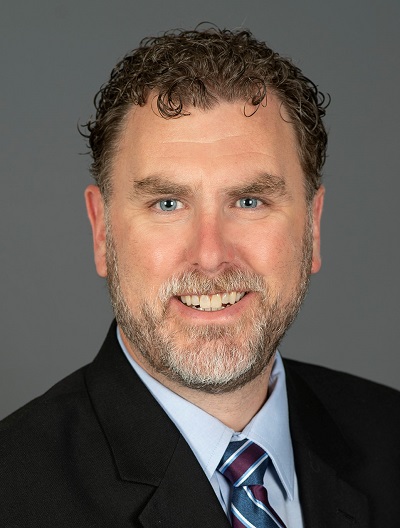
Western Carolina University’s Kimmel School of Construction Management Experiencing Significant Growth
GroundBreak Carolinas recently had the opportunity to chat with John Hildreth, PhD, Distinguished Professor and Interim Director of the Kimmel School of Construction Management (KSCM) at Western Carolina University (WCU) in Cullowhee, North Carolina.
Part of WCU’s College of Engineering and Technology, the Kimmel School of Construction Management is one of only a few CM programs in the Southeast region housed in an engineering college. Hildreth explained that this allows WCU to bring a unique technical aspect to the CM program and include topics such as construction materials, temporary structures, and survey layout. There are approximately 215 undergraduate students and 55 graduate students currently enrolled in the program.
Tell us about the Construction Management program at WCU.
The Bachelor of Science in Construction Management (BSCM) at Western Carolina University is designed for students interested in the technical aspects of managing construction projects from inception to completion. We are preparing students for a professional career in construction. This includes the professional and technical skills necessary for the early career professional working as a member and/or leader of an on-site project management team, as well as the managerial and business skills necessary to move upward in their career.
Are there particular areas of concentration?
The four-year BSCM curriculum includes traditional construction topics such as safety, estimating, planning, and contracting. Also, embedded within the BSCM curriculum is a minor in Business Administration. Students earn the minor without completing additional required courses.
What makes WCU’s school unique from other programs in the Southeast?
There are two unique aspects to the Construction Management program at WCU. First, all KSCM faculty have professional industry experience. The ability of faculty to draw upon their experiences and bring those into the classroom makes for more relevant courses and more authentic instruction. The second is that the program focuses on the construction process, whereas many similarly titled programs focus on pre-construction activities. This is driven by the experiences of the faculty, the interests of the students, and the demand from industry.
Is the program growing significantly?
Both the undergraduate and graduate programs have experienced significant growth in recent years. The BSCM program has seen enrollment grow by nearly 60 percent during the past five years. In that same time period, enrollment in the graduate program has increased over 80 percent.
How is the program adjusting to meet the changing needs of the industry?
We are incorporating current technologies in our curriculum and have invested significantly in technologies in our courses. Our students use GPS and robotic total stations for construction survey layout; industry leading software applications for quantity take-off, estimating, and scheduling; BIM and 4D planning applications; as well as drones and virtual/augmented reality technologies.
We are also responding to a clear need from our industry partners for students skilled in communication and collaboration. We have increased the number of opportunities for students to collaborate as a team and students receive specific instruction on effective teamwork practices. An increased emphasis has been placed on communication – both oral and written forms – in courses throughout the curriculum.
We worked with Wayne Brothers – a valued industry partner – to provide students the opportunity to receive OHSA 30 training, as well as CPR and first aid certifications.
Is a specific number of student internship hours with industry firms a requirement for graduation?
All undergraduate students complete an internship that provides 400 hours of experience in the construction industry. The internships are typically completed during a summer and the experiences are transformational for the students, both educationally and professionally. Internships allows the students to apply Construction Management concepts they have learned while contributing to a project-team in a real-world construction environment. Students return to campus energized and eager to learn because the internships allow them to connect their experiences in the field with the discussions in the classrooms.
What was the average starting salary of your 2021 class of graduates?
The demand for graduating Construction Management students has been extremely high over the past few years. Students are receiving multiple offers and most have secured employment long before graduation. Starting salaries range from $55k to $75k depending on the student’s experience and history with the employer. Many students gain experience with their future employers through multiple summer internships and/or part-time employment while completing their degree.
What percentage of your graduates pursue careers in the industrial/commercial sector and what percentage followed a residential construction path?
I would roughly estimate that our graduates distribute themselves across the industry as follows:
- 20 percent residential (single and multi-family)
- 50 percent commercial and light industrial
- 30 percent heavy civil infrastructure (this is likely to increase given the recently passed infrastructure bill)
- A rising interest in heavy industrial
How many different states are represented with the current students involved in the program?
The population of our Construction Management students primarily come from North Carolina, South Carolina, Georgia, and Tennessee, but we also have students from as far away as Oregon. The quality education and community that defines Western Carolina University, combined with our unique location along the Tuckasegee River between the Blue Ridge and Great Smoky Mountains, draws students from across the country.
Who are some of your largest employers?
Our students are recruited and employed by the very best construction companies operating in the southeast in nearly all industry sectors. The following list is not exhaustive and is in no particular order:
- Vannoy Construction Company
- Morgan Corporation
- Philips and Jordan
- Brasfield & Gorrie
- America’s Home Place
- Wright Brothers
- Harper Corporation
- Conlan Company
- Reeves Construction Company
- State Utility Contractors
- WEAVERCOOKE Construction
- Thompson Construction
- Baker Concrete Construction
- Wayne Brothers
- Shelco
- Lane Construction
- Whiting-Turner Contracting Company
In what ways can employers get involved in your program?
There are several options available to employers interested in engaging in the program. We host a Construction Career Fair on campus each fall that draws companies from across the eastern US. There is also a spring career fair for all majors at which a number of construction companies recruit. Guest lectures and company informational sessions are opportunities to communicate with students in a more focused and direct way. Companies can increase visibility by supporting student competition teams and providing current industry practice examples for use in classes. We also entertain nominations for service on our advisory board.

How is the program/university engaging in the local community?
As we are (hopefully) nearing the end of the COVID era, universities across the country are being challenged to re-engage students in the university and local communities. The CM Student Club at WCU has historically been involved in serving the community through programs such as Habitat for Humanity and other local projects. This past spring a group of students worked with middle school students at the Summit Charter School in nearby Cashiers to design and build little free libraries in the community. Students have also sponsored food drives and worked with local ministries.
Are you finding that graduates are remaining in the WNC area after graduation?
Many of WCU’s BSCM graduates enjoy full-time employment in the western North Carolina and Upstate South Carolina region. However, many companies recruiting on campus have a national (or international) footprint. These companies provide opportunities for students to work without geographic limitations and on large, complex, and unique projects.
How did your tenure at Virginia Tech and UNC Charlotte prepare you for this position?
My experience as a Senior Research Associate at Virginia Tech and my experiences on the faculty at UNC Charlotte were critical to preparing me for my current position as the Kimmel Distinguished Professor of Construction Management at WCU.
Virginia Tech is a fantastic place and I was fortunate to make my start working with some of the very best faculty, students, and construction professionals while I was there. My experiences teaching engineering students and guiding them in research helped me develop a deep appreciation for the technical education of construction professionals. I have long said that the most important lesson I learned in my undergraduate engineering education is how to solve problems – the details and necessary technical knowledge changes with each problem, but the fundamental approach to problem solving remains. I also was fortunate to work with VDOT and contractors across Virginia, which helped me develop a unique perspective of how the university and the industry can work together to create meaningful change.
My tenure at UNC Charlotte was an incredible experience that allowed me to develop and mature as an educator, researcher, and administrator. I was fortunate to have joined the faculty in the Department of Engineering Technology and Construction Management at a time of great potential and at the beginning of what was a period of tremendous growth in the college and university. During that time, I was able to hone my educational skills and develop a nationally recognized research program in the area of transportation asset management. For six years at UNC Charlotte, I was fortunate to have been given administrative responsibilities in both the undergraduate and graduate programs. In those roles, I worked closely with the construction industry to establish key partnerships with the university and to develop relationships with many construction organizations.
What is your role in the Associated Schools of Construction (ASC)? Give us an update on this year’s competition.
I currently serve as the Assistant Director of ASC Region 2, which is the southeastern region from Virginia to Mississippi. In the fall of 2021, the ASC Region 2 student construction competitions returned to an in-person event. It was an outstanding success with over 200 students, faculty, and industry partners meeting in Peachtree City, GA for competitions in five categories. Competition categories and sponsors were:
- Design-Build: A M King
- Commercial: Holder Construction
- Concrete: Baker Concrete Construction
- Heavy Civil: Kiewit
- Risk and Finance: Brasfield & Gorrie
More about John Hildreth, PhD
As the Kimmel Distinguished Professor of Construction Management at Western Carolina University, Hildreth’s teaching and research interests focus on construction equipment, asset management, cost estimating, and production planning. He has completed multiple research projects related to the effective and efficient management of mobile equipment and the capital-intensive assets of transportation systems. He has provided consulting services related to equipment and fleet management and been an instructor for the Construction Equipment Management Program (CEMP). He is the educational advisor to the Association of Construction Equipment Managers and chair of the Maintenance Fleet and Equipment committee of the Transportation Research Board (TRB). He holds civil engineering degrees (BS and MS) from West Virginia University and a PhD from Virginia Tech.

Kimmel Distinguished Professor of Construction Management






